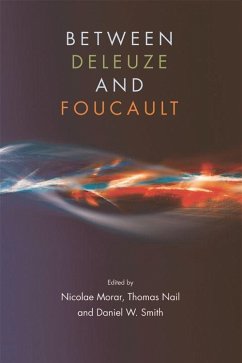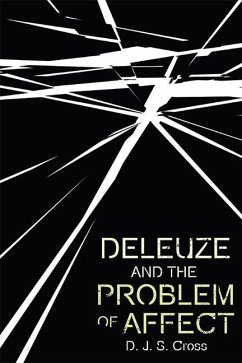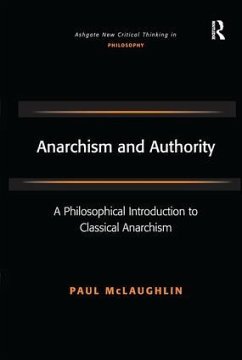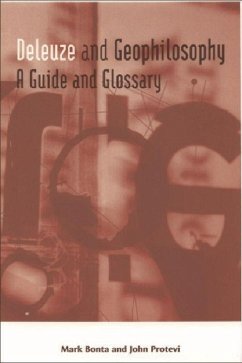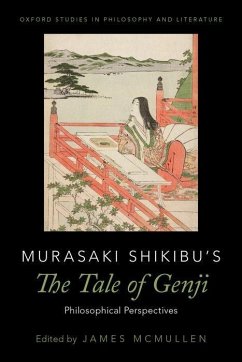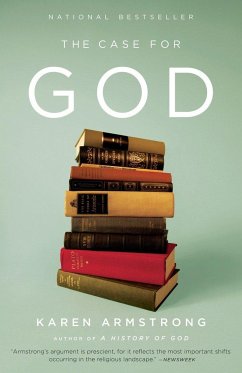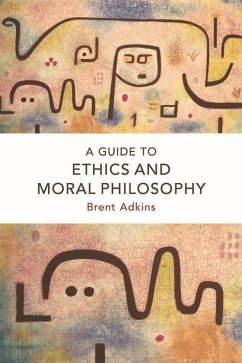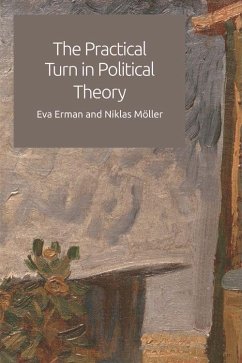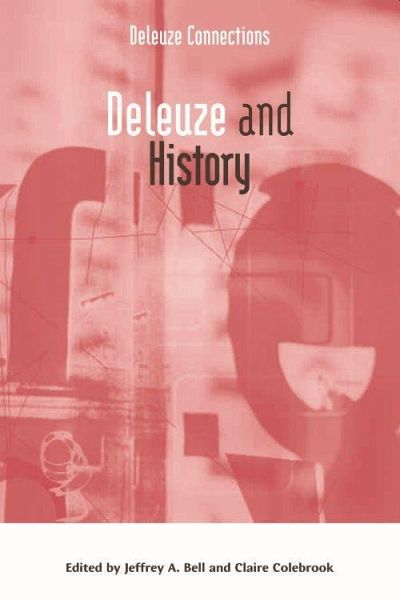
Deleuze and History

PAYBACK Punkte
21 °P sammeln!
Time, evolution, becoming, and genealogy are central concepts in Deleuze's work, yet there has been no sustained study of his philosophy in relation to the question of history. Those working in history, the history of ideas, science, evolutionary psychology, and interdisciplinary projects inflected by historical problems will benefit from this volume, which applies Deleuze's philosophy to historical method, describes the critical giant's own use of the history of philosophy, elaborates on his complex theories of time and evolution, and shares his interpretations of historical thinkers such as Hume and Nietzsche. Internationally renowned contributors include: Paul Patton, Manuel DeLanda, John Protevi, Ian Buchanan, Tim Flanagan, Keith Ansell Pearson, James Williams, Eve Bischoff, Miguel de Beistegui, and Jay Lampert.
Despite the fact that time, evolution, becoming and genealogy are central concepts in Deleuze's work there has been no sustained study of his philosophy in relation to the question of history. This book aims to open up Deleuze's relevance to those working in history, the history of ideas, science studies, evolutionary psychology, history of philosophy and interdisciplinary projects inflected by historical problems. The essays in this volume (all by internationally recognised Deleuze scholars) cover all aspects of Deleuze's philosophy and its relation to history, ranging from the application of Deleuze's philosophy to historical method, Deleuze's own use of the history of philosophy, his interpretations of other historical thinkers (such as Hume and Nietzsche) and the complex theories of time and evolution in his work. Contributors include: Paul Patton, Manuel DeLanda, John Protevi, Ian Buchanan, Tim Flanagan, James Williams, Eve Bischoff, Jay Lampert. Jeffrey Bell is Professor of Philosophy at Southeastern Louisiana University. He is the author of numerous articles and books on Deleuze, including Deleuze's Hume: Philosophy, Culture and the Scottish Enlightenment and Philosophy at the Edge of Chaos: Gilles Deleuze and the Philosophy of Difference. Claire Colebrook teaches English at the University of Edinburgh and has written books on Deleuze, Gender, Irony, Milton, Literary Theory and Poststructuralism.




